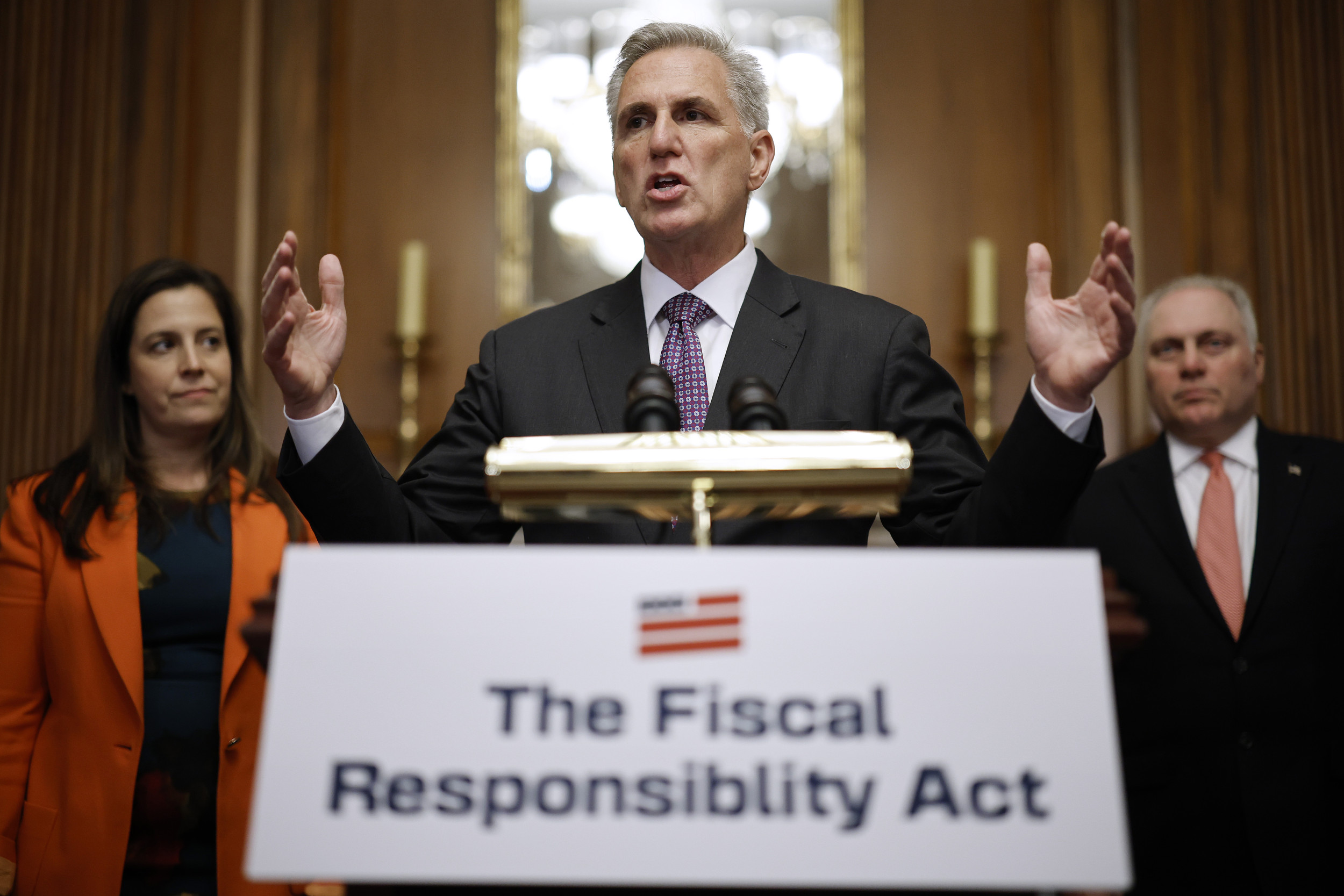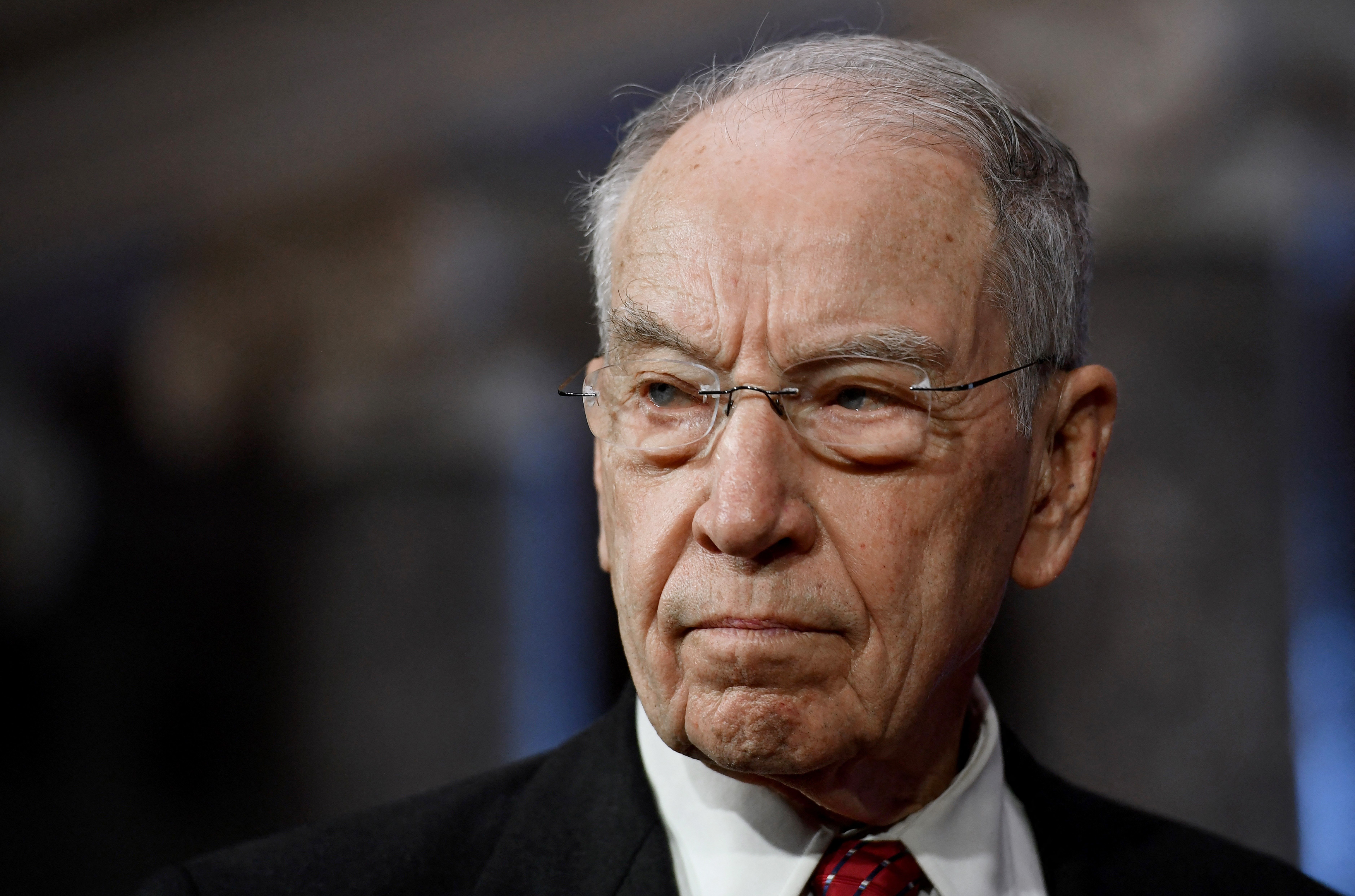Senate Passes Debt Limit Deal, Sending Bill to President Joe Biden's Desk
The Senate voted 63-36 to send a bill raising the nation's borrowing limit to President Joe Biden's desk, ending a months-long political battle that jeopardized the full faith and credit of the United States and risked a potential economic disaster.
After 11 rounds of voting on a series of amendments proposed by lawmakers on both sides of the aisle, the upper chamber managed to pass the measure, known as the Fiscal Responsibility Act, a little over 24 hours after the House advanced its version of the bill, a quick turnaround for the upper chamber that typically takes around a week to pass legislation.
Bipartisanship prevailed at the end of the process, and no amendments attained the 60 votes needed for inclusion. Had they reached the threshold, the fragile bill, which was the product of weeks-long negotiations between Biden and House Speaker Kevin McCarthy, would likely not have made it to the president's desk ahead of the estimated June 5 default date.
"The consequences of default would be catastrophic. It would almost certainly cause another recession," Senate Majority Leader Charles Schumer, a New York Democrat, said ahead of the vote. "I am pleased, so pleased, to announce that both sides have just locked in an agreement that enables the Senate to pass legislation tonight, avoiding default."

Consensus over raising the debt limit emerged as an issue when Republicans gained control of the House after the 2024 midterm elections. Speaker Kevin McCarthy pledged to fulfill the wishes of his conference and move toward lowering the country's $31.4 trillion national debt.
While Schumer and Biden originally refused to consider exchanging conservative policy concessions for a raising of the debt ceiling, House Republicans ultimately brought them to the table after McCarthy pulled enough of his conference together to pass a party-line bill, laying out a policy wish list that served as a starting point for negotiations.
The final deal, which is reflected in the Senate bill, reduces the national debt by $1.5 trillion, with roughly $1.3 trillion of the savings originating from instituting caps on non-defense discretionary spending for fiscal years 2024 and 2025. Spending for 2024 will remain around current levels, and 2025 spending cannot be raised by more than 1 percent. Along with the caps, the bill decreases mandatory spending by $10 billion. These savings will help lower interest the U.S. pays on its debt by $188 billion.
In addition to lowering the debt, the bill raises requirements for childless adults ages 50 to 54 receiving food stipends through the Supplemental Nutrition Assistance Program (SNAP). It speeds up the approval of new energy projects and approves a pipeline project in West Virginia.
The measure also claws back $30 billion in unspent COVID-19 relief funds and ends the COVID-19-era freeze on student loan payment. Lastly, the bill rescinds $1.38 billion from the IRS and repurposes another $20 billion from the $80 billion the agency received through Biden's Inflation Reduction Act.
"The Fiscal Responsibility Act avoids the catastrophic consequences of default on our nation's debt," Senator Minority Leader Mitch McConnell, a Kentucky Republican, said in a morning speech ahead of the vote. "And just as importantly, it makes the most serious headway in years toward curbing Washington Democrats' reckless spending addiction."
While reaching this point took months of heated debate and economic uncertainty, it may very well have little bearing on the greater political landscape come 2024.
The original proposal brought forth by Republicans only raised the debt ceiling for one year. However, White House negotiators ultimately succeeded in getting a commitment from McCarthy's team to prevent the limit from being reached again until January 2025, keeping election season free of a potential reoccurrence of the saga.
Michigan Senator Gary Peters, who chairs the Democratic Senatorial Campaign Committee, which is responsible keeping the upper chamber blue in 2024, did not tout the debt ceiling deal as something that will weigh big on the minds of voters. However, that might not have been the case had a default occurred.
"If there was a default, that would be a huge issue," Peters told Newsweek. "Default is unacceptable. It would be catastrophic for the economy and certainly the people who are willing to put the economy in default would pay a huge electoral price."








